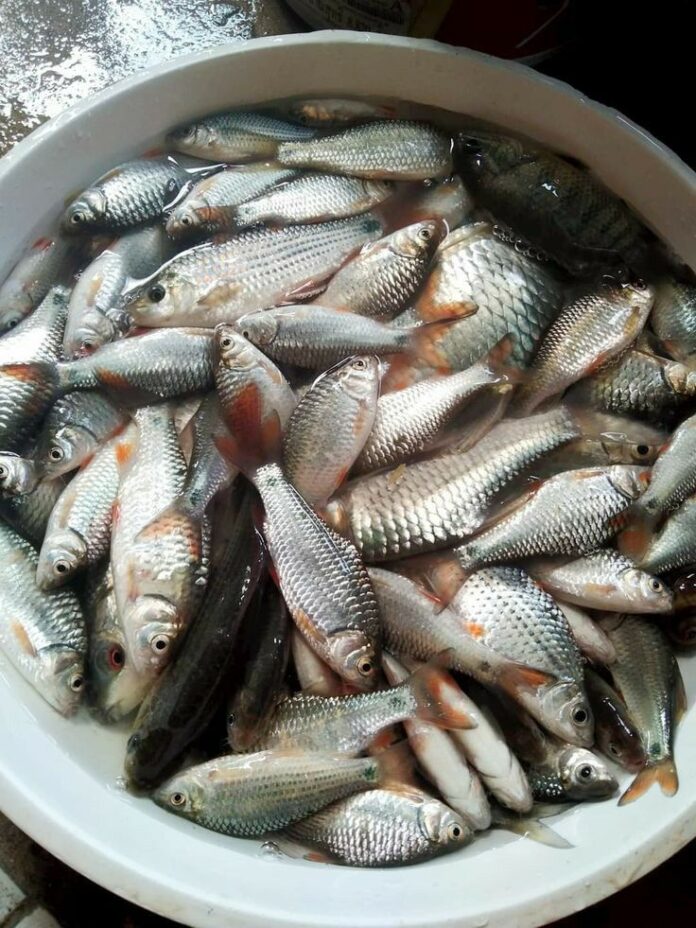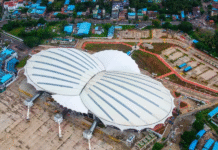In an effort to boost aquaculture-based livelihoods in the North and Middle Andaman region, the ICAR-Krishi Vigyan Kendra (KVK), in collaboration with the Department of Fisheries, organized a three-day skill development programme on Indian Major Carp (IMC) breeding from July 28 to 30 at Uttara Gram Panchayat’s community hall.
Targeted at rural youth and farming communities, the training aimed to equip participants with scientific fish breeding techniques, helping them tap into the economic potential of backyard aquaculture. The event was inaugurated by Pradhan Prakash Mondal, who emphasized the importance of such programs in empowering local farmers to adopt sustainable, income-generating practices.
IMC species such as Catla, Rohu, and Mrigal are considered suitable for freshwater aquaculture in the islands. Dr. V. Damodaran, Senior Scientist and Head of KVK, highlighted the strategic importance of promoting these species to enhance food security and generate employment. He stressed the need to adopt modern, sustainable fish breeding practices to improve productivity and ecosystem health.
The technical sessions were led by Subam Debroy, Subject Matter Specialist (Fisheries Science) at ICAR-KVK. He provided hands-on training in broodstock management and induced breeding techniques. Participants were introduced to key practices such as broodstock selection, conditioning, and sex differentiation based on secondary traits. One of the highlights of the session was training on the use of synthetic hormone WOVAFH for induced breeding. The correct dosage, ovulation timing, and sex ratio synchronization (typically 1 female:2 males) were explained in detail to ensure successful hatchery operations.
The training also covered critical aspects like larval rearing, feeding schedules, egg handling, and environmental management. Debroy emphasized common breeding challenges and troubleshooting methods, including temperature regulation and prevention of hormone overdosing. These scientific insights were particularly valuable for beginners and small-scale farmers seeking to convert available pond resources into productive aquaculture units.
Soni, Fisheries Inspector, provided a comprehensive overview of sustainable fish farming methods and briefed attendees about schemes available under the Pradhan Mantri Matsya Sampada Yojana (PMMSY). Her address focused on how local fish farmers can tap into government support to scale their operations while maintaining ecological balance.
The training was held under the guidance of Dr. Eaknath B. Chakurkar, Director of ICAR-CIARI, Sri Vijayapuram. The overall participation of 61 rural youth, including farm women, underscored a strong grassroots interest in aquaculture-based livelihood options. Organizers noted that the islands, with their abundant freshwater and community-managed resources, have significant potential for inland fish farming if properly supported through training and infrastructure.
By targeting youth and providing scientific exposure at the village level, the training aimed to reduce dependency on external food sources and encourage local entrepreneurship in fish production. Participants expressed interest in applying the newly acquired skills to their backyard ponds and exploring group-based ventures.
As the demand for locally-sourced fish grows in the islands, the training is expected to act as a catalyst for micro-aquaculture enterprises. The initiative aligns with broader government efforts to double farmer incomes and promote self-reliance through integrated rural development.





